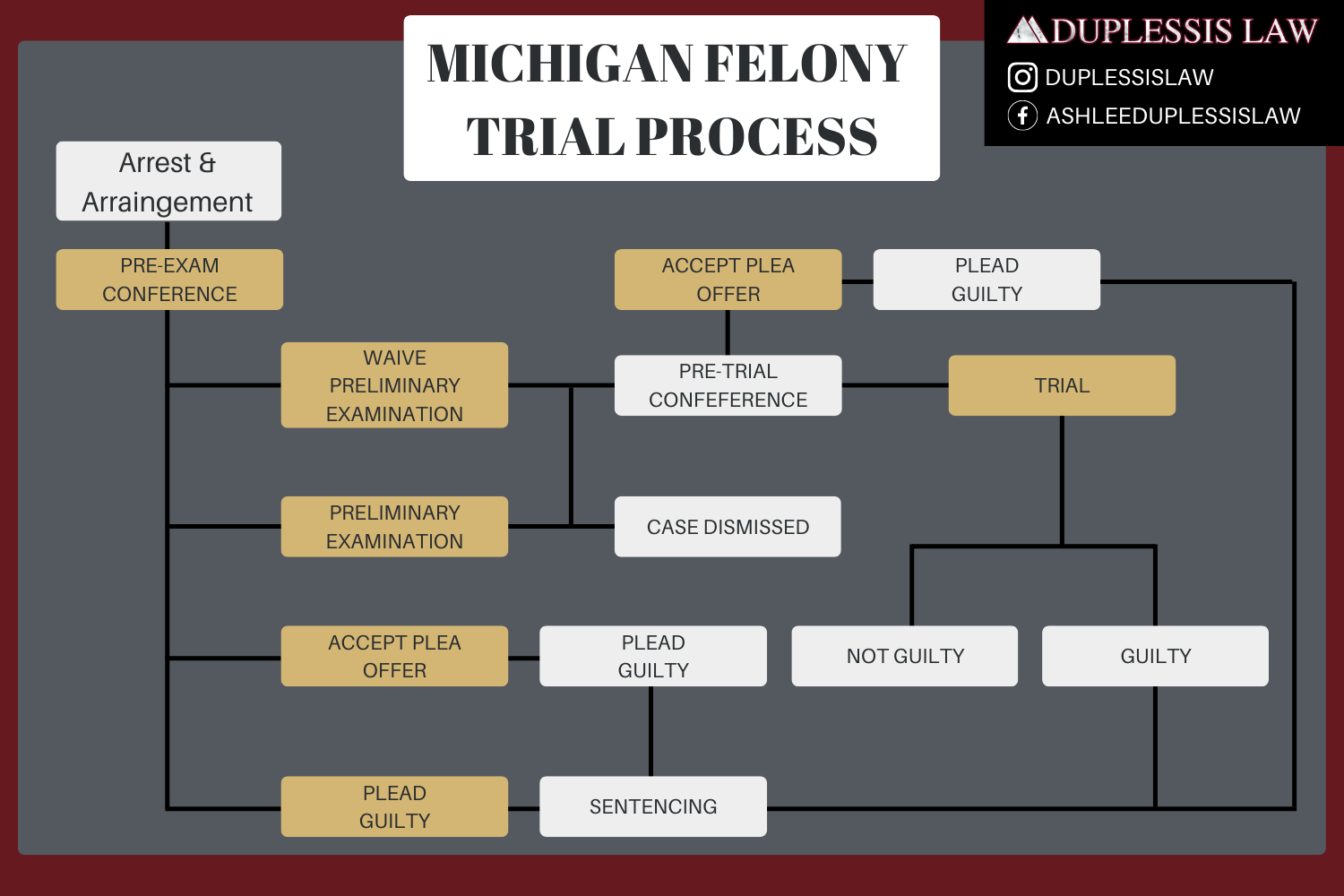CRIMINAL DEFENSE ATTORNEY
Michigan Felony Trial Process
Representing Clients In Macomb, Washtenaw and Wayne County.

Arrest and Arraignment:
- This is the first step of a criminal process. After a person is arrested they are taken to a district court where they are read their charge and they are advised of their rights.
Pre-Exam Conference:
- During this stage, the prosecutor and the defendant’s attorney discuss the case and see if it can be moved forward without the need to hold the preliminary examination.
Preliminary Examination:
- A defendant can waive their right to a preliminary examination.
- If the preliminary examination is heard then it must be done so within 14 days of the arraignment. This is commonly known as the ‘probably cause’ hearing. If it is established that there is enough evidence for the case to go ahead then the process moves on to the next step. If there is not enough probable cause then the case is dismissed.
Pre-Trial Conference:
- Before the pre-trial conference happens the defendant is sent to a circuit court conference. Since felonies are handled by the circuit courts this process is similar to the initial arraignment at the district court however this time the defendant enters a plea.
- During the pre-trial conference, the defendant and the prosecutor try to resolve the case without it needing to go to trial. Most cases throughout the country, not just in Michigan, are resolved before a trial.
- Plea deals are usually discussed at this step of the process but they can be made up until the actual trial.
Trial:
- If the prosecution and defense could not come up with an acceptable agreement then the case proceeds to trial. A trial can be either a bench trial or a jury trial. A bench trial is one where the judge is the decider of the facts of the case and thus the guilt of the defendant. In a jury trial, the jurors are the deciders. The defendant does not have to prove their innocence. However, they can challenge the accuracy of the prosecution’s evidence.
Sentencing:
- If the defendant is found guilty or if they plead guilty at any step of the process then they go through the sentencing process. Both the prosecution and the defense (the defendant’s attorney) will make recommendations and arguments as to what the appropriate sentence will be.
Appeals:
- After the sentencing, the felon’s legal team can send an appeal to the Court of Appeals. The Court of Appeals reviews arguments that there were legal errors and those errors affected the outcome of the case.
Detroit Criminal Defense Attorney Ashlee Duplessis
I believe that everyone deserves to have someone fight for them. When you are accused of committing a crime, it feels like the entire government is against you- because it is. I have made it my life mission to stand in front of my clients when the government is knocking on their door.
As an attorney, I only practice criminal defense and civil rights because I believe that the Constitution is sacred. When you hire me, you are hiring a lawyer who will stop at nothing to protect your rights. You are my only priority.
